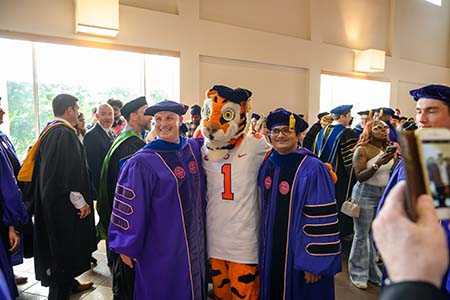Auburn University, Clemson University, Louisiana State University and the University of Missouri want their mascot to roar forever. That's why they have joined forces to form the Tigers United University Consortium, committed to saving wild tigers worldwide.

The Problem
According to best estimates, approximately 5,000 tigers remaining in the wild.
The reasons for dwindling populations are varied.
Major issues include loss of tigers'
natural habitats, poaching and human-tiger conflicts, which affect the 13 tiger range countries.
The Consortium
The Tigers United University Consortium was initiated by Clemson University President James P. Clements, who also serves on the Global Tiger Initiative Council. Comprised of business and conservation leaders, this international council assists the Global Tiger Forum in saving remainig populations of wild tigers.
Through the consortium, the four universities combine their expertise in academic disciplines important to tiger conservation and protection—wildlife management, engineering, environmental science, conservation social science, veterinary medicine, communications, and eco-tourism, to name a few. With more than one university approaching the problem, the odds of success increase.












